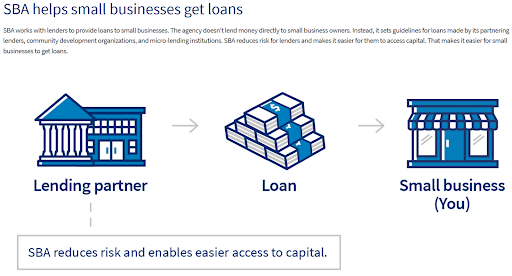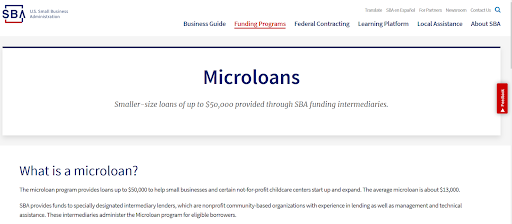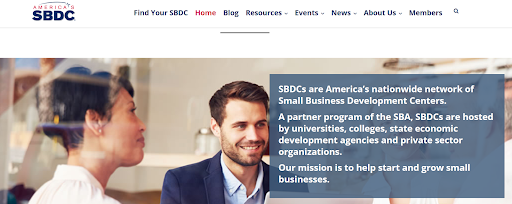Can a Felon Have an LLC?
To answer the question right off the bat: Yes, a Felon can Have an LLC and start a Business!
If you want to start an LLC today, Here’s our top choices of Agents to use:
For a person who has a checkered past and got jailed for it, a second chance comes when they have successfully served their sentence.
One of the purposes of prison is rehabilitation after all.
Just because a person has done something bad in the past doesn’t necessarily mean that they are incapable of living an honest life.
Unfortunately though, having a criminal record may make it more difficult to find a job compared to not having one.
That doesn’t mean that a person who has a criminal record cannot get himself or herself a job, but it may take them some time to find one.
But it’s not like getting a job is the only way for a person to restart his/her life right?
There are other options like… starting a business!
In this article, we will learn whether a felon can start his/her own business, specifically an LLC, and if yes, how s/he can start it.
If you are a person who has done something bad in the past, got caught for it, has eventually reflected on it, and is looking to start a new life by forming an LLC, then this article is for you.
If you are not, gaining a little bit of knowledge can’t hurt right?

What is a felon?
A felon is someone who has been charged and convicted of the most serious type of crime felony.
Felons serve a prison sentence of at least a year and a day but can serve for more, sometimes even a lifetime.
Even if a felon has successfully served his/her sentence, the effects of having a felony conviction can last even after the sentence ends.
Certain rights are lost, and felons may be the target of prejudice.
However, does that mean that a felon cannot start a business?
What is a felony?
A felony is a type of crime and is considered to be the most serious.
While the definition of a felony isn’t uniform throughout the different states of the US, the federal government does define it as a crime with a punishment of more than one year.
The federal law has five classifications for felonies based on the amount of prison time to be served:
- Class A felony – crimes of this class are sentenced to life imprisonment or the death penalty
- Class B felony – crimes of this class are sentenced to twenty-five (25) or more years
- Class C felony – crimes of this class are sentenced to more than ten (10) years but less than twenty-five (25) years
- Class D felony – crimes of this class are sentenced to more than five (5) years but less than ten (10) years
- Class E felony – crimes of this class are sentenced to more than one (1) year but less than five (5) years
Felonies tend to be crimes that involve any form of violence and are generally considered to be harmful to a specific person, a group of people, or even society as a whole.
The state laws and the circumstances surrounding the crime are often what determine whether a crime is severe enough to be treated as a felony.
The following are examples of crimes that are usually considered to be felony crimes:
- Drug-related crimes such as the distribution, sale, or trafficking of drugs
- Sex crimes such as rape, sexual assault, or human trafficking
- Murder (1st and 2nd degree)
- Robbery
- White-collar crimes such as embezzlement, tax evasion, financial statements fraud, etc.
- Crimes against property such as grand theft, arson, or vandalism
What is an LLC?
An LLC is a type of business entity that combines certain aspects of a sole proprietorship or partnership and a corporation.
It enjoys a “pass-through entity” status just like a sole proprietorship or partnership and offers its owners limited liability protection just like a corporation.
LLCs can be formed in any state and usually require less paperwork than corporations which makes them relatively easier to form.
An LLC can be formed by one or more persons or business entities.
LLCs are popular because of their flexibility and relative ease of formation.
LLCs can be formed for almost any purpose (as long as it’s legal), and can even be formed for a non-profit one (except for some states).
Can a felon have an LLC?

Now that we’ve learned what a felon and an LLC are, we can now answer the question “Can a felon have an LLC?”.
Well, YES, a felon can have an LLC. However, it comes with restrictions.
While a felon loses some of his/her rights (which, thankfully, can be restored after some time has passed), it doesn’t disqualify them from starting a business (and an LLC to that extent).
For reference, the following are the rights that a felon loses:
- The right to act as a juror in civil or criminal cases
- The right to vote (is restored after successfully serving his/her sentence)
- The right to hold or be elected to a public office
- The right to own, possess or purchase a gun/firearm
- The right to travel and/or seek employment outside the country
- Parental rights
- The right to public assistance and housing
So yeah, the good news is that a felon can have an LLC.
What are the restrictions?
The bad news though is that certain types of business ventures, particularly ones that require a license, may be off-limits to a felon.
For starters, any business that involves medicine, finance, law, or dangerous materials cannot be owned or formed by a felon.
This applies even if the felon’s past conviction is not related to those areas of business, so if you’re a felon who’s looking to start a business in those stated areas, you’re better off starting a business in other areas.
Additionally, some types of business ventures may be inaccessible to a felon who is convicted of a certain felony.
For example, if a felon was convicted of a sexual offense, then s/he probably wouldn’t be granted permission to operate a daycare, childcare facility, or school.
Depending on the state, some licenses are inaccessible for felons (e.g. professional licensures for real estate brokers, accountants, private investigators, insurance brokers, etc.), so businesses that require a certain license may be off-limits to a felon too.
While it may seem that there are a lot of restrictions as to what type of business a felon can own, do not let it distract you from the fact that many other businesses don’t even need a special or specific license other than a business license.
It is recommended to check with the Secretary of State to clarify which businesses you can own.
Starting an LLC as a felon
Aside from the additional step of checking what businesses are restricted for felons, the process of starting an LLC as a felon is practically the same with a person who does not have a criminal record.
- First, choose the state in which you want to form your LLC. It is recommended that you form your LLC in the state where you intend for it to operate.
- Next, choose a name for your LLC, and make sure it’s available. If you’re not quite ready to file your LLC documents, you may want to reserve the name for your LLC. Many states allow you to do this for a fee.
- Then, choose a registered agent for your LLC. You can choose to appoint yourself as your LLC’s registered agent, or you can appoint someone else, preferably a registered agent service provider.
- Next, prepare an operating agreement (even if you’re the sole owner). Make sure to put it in writing.
- Lastly, file your LLC with the state. You do this by submitting the LLC’s formation documents (referred to as Articles of Organization, Certificate of Organization, or Certificate of Formation depending on the state) with the department responsible for handling business formations, usually the Secretary of State’s office.
Get yourself a certificate of relief from disabilities
If your state allows individuals who have a past felony conviction to get a certificate of relief from disabilities, then you might want to consider getting one.
Having one can help you greatly. If a convicted felon has a certificate of relief from disabilities, s/he can’t be denied employment or the granting of a license just because s/he was once convicted.
This means that you might be able to secure a license to operate a type of business that was previously off-limits to you when you didn’t have a certificate of relief from disabilities.
It should be noted though that a felon is only eligible for a certificate of relief from disabilities if s/he has not been convection of more than one felony.
If a person is convicted of two or more felony convictions in the same court on the same date, it is still considered as one conviction for CRD eligibility purposes.
If a person is convicted of two or more felony convictions (not in the same court and at the same time), then s/he will no longer be eligible for a CRD, but s/he can still get a certificate of good conduct.
Not all states offer a certificate of relief from disabilities.
The states that offer it currently are: Arizona, California, Colorado, Connecticut, District of Columbia, Georgia, Illinois, Iowa, Michigan, Nevada, New Jersey, New York, North Carolina, Ohio, Rhode Island, Tennessee, Vermont, and Washington. Depending on the state, it may be referred to by a different name (e.g. Certificate of Restoration of Opportunity, Release from Disabilities, Certificate of Rehabilitation).
Here’s a link that shows a table of which states offer a certificate of relief from disabilities (or a similar certificate) and who issues them.
Consider a co-owner for your LLC
Admit it or not, our society has not advanced to the point where prejudice towards people with a criminal conviction is a non-issue. And it probably never will.
That’s why it’s extra challenging for felons to start or run their business.
On top of the usual business woes, a felon would have to get past the hurdle of finding outside funding.
Most banks won’t extend credit to a person with a past criminal conviction.
Also, it will definitely be hard to find an angel investor.
If you have a family who can support you financially and is willing to fund your business, then you have one less thing to worry about.
This is how Dave’s Killer Bread, a Portland-based company, started.
One of its owners, Dave Dahl, previously served 15 years of prison time.
He was welcomed back by his older brother, and along with his nephew, the three founded the company.
However, not everyone is as fortunate as Dave when it comes to family.
That means a felon who needs funding aside from what s/he could provide would have to find other sources of funding for his/her LLC.
But we already mentioned that a person with a past criminal conviction would find it hard to be approved for a bank loan or credit.
Thankfully, there is a sort of workaround for that.
Since an LLC can have more than one owner, you might want to consider partnering with someone who does not have a criminal record (preferably someone with whom you can have mutual trust).
This way, even if you can’t qualify for a bank loan, your co-owner might.
Also, a co-owner can provide more than just financial support, s/he can also provide emotional support.
Granted that this option isn’t for everyone, but if you already have someone in mind who can be your co-owner, then it could work well for you.
Find funding sources for your LLC
While it is admittedly hard for a felon to secure funding from a bank or an angel investor, it doesn’t mean that s/he cannot seek outside funding.
They’re still government grants and small business loans that felons can qualify for.
The government’s Small Business Administration grants loans for small businesses.
SBA loans do not necessarily screen out felons, which makes them accessible to anyone, with or without a criminal record.
However, those convicted of a financial crime or anything that involves dishonesty may be denied SBA loans.
Through the SBA program, banks are willing to lend to a felon.
This is because SBA loans are backed by the government rather than their own funds.

Source: https://www.sba.gov/funding-programs/loans
It’s not exactly easy to get secure an SBA loan (this is the same for everyone, felon or not).
Thankfully, the SBA has another loan program that is more accessible – the SBA microloan program.
It focuses on loans of up to $50,000, with an average loan of about $13,000.
If you need at most $50,000 of outside funding, then the SBA microloan program may give you a better chance than the regular SBA loan.

Source: https://www.sba.gov/funding-programs/loans/microloans
Crowdfunding websites such as Kickstarter, IndieGoGo, and GoFundMe can also be a source of outside funding too.
These websites have helped fund numerous successful startups such as Oculus (which was purchased by Facebook for $2billion in 2014), Exploding Kittens (a card game that raised $8million in crowdfunding), etc.
You’d have to get creative though if you want to go this route.
A crowdfunding campaign will only be successful if you can convince, connect, and resonate enough with people for them to be willing to fund your business.
Online resources for felons
In starting an LCC, or any type of business for that matter, you’d need more than just funding.
You’d need to have the necessary know-how to make your LLC a successful business.
The following websites do not necessarily provide you funding, but they provide you assistance in starting and running a business, such as offering free entrepreneurship courses, free advice and counseling from business experts, conducting seminars and webinars, etc.
Inmates to Entrepreneurs

Source: https://inmatestoentrepreneurs.org/
Specifically made for persons with a criminal history (or inmates as they would call them), Inmates to Entrepreneurs is a nonprofit organization that aims to help inmates start their own businesses.
It does this by offering free entrepreneurship courses (an eight-week course or Starter U which is a self-paced online course).
As of this article’s publication, this non-profit organization already has 29 years of teaching and helping people start their businesses under its belt.
What makes it more relatable to felons is that many of the instructors are former felons themselves, which means that they understand the struggle of starting a business as a felon.
Small Business Development Centers (SBDC)

Source: https://americassbdc.org/
A nationwide, nonprofit network, the Association of Small Business Development Centers (SBDCs) assists business owners and aspiring entrepreneurs in starting and running their businesses.
They can tap business experts such as accountants, marketing professionals, and attorneys that can give free advice and counseling to small business owners and would-be business owners.
With nearly 1,000 local centers that can provide low-cost training, the SBDC is well equipped to help those who want to successfully start and run a business.
They also conduct seminars and webinars.
SCORE

Source: https://www.score.org/
SCORE has been providing education and mentorship to entrepreneurs ever since 1964 (that’s over 50 years!).
It is a non-profit organization and is a resource partner of the U.S. SBA. Being the nation’s larger network of volunteer expert business mentors, it is able to provide free assistance to aspiring entrepreneurs.
SCORE provides a wide range of services that helps aspiring entrepreneurs start and run their business.
These services include mentoring, webinars and on-demand courses, a library of online resources, local workshops, and more.
SCORE has more than 300 chapters nationwide that are always ready to help. Find the nearest SCORE chapter to you by using visiting their Find a Location page.
Conclusion & Takeaways
Having a felony conviction does not disqualify a person from owning a business.
That means that a felon can have an LLC.
However, there are restrictions as to what types of business a felon can form.
A business in the following areas is always off-limited to a felon no matter what his/her past conviction was: medicine, finance, law, or dangerous materials.
In addition, businesses that require a specific license such as a professional license may be inaccessible to felons too, depending on the state.
While it is extra challenging for a felon to start an LLC, there are many resources (which are accessible online) that can help make the process much more bearable.
In the end, having a felony conviction does not determine whether a person can successfully start and run his/her business but rather his/her drive to succeed.
FundsNet requires Contributors, Writers and Authors to use Primary Sources to source and cite their work. These Sources include White Papers, Government Information & Data, Original Reporting and Interviews from Industry Experts. Reputable Publishers are also sourced and cited where appropriate. Learn more about the standards we follow in producing Accurate, Unbiased and Researched Content in our editorial policy.
NIC.gov "Certificates of Restoration by State " Page 1 . October 19, 2021
SBA.gov "Microloans" Page 1 . October 19, 2021
SBA.gov "SBA Loans" Page 1 . October 19, 2021
IRS.gov "Starting a Business" Page 1 . October 19, 2021
IRS.gov "Limited Liability Company (LLC)" Page 1 . October 19, 2021
